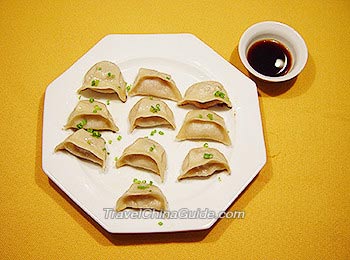Traditions Concerning Money
Dumpling
(Jiaozi) |
| Chinese Dumplings Learn to Make Dumplings |
When we make dumplings for the first meal of the new year. Dumplings made for this special occasion are different from those ordinary ones. Dumplings for the new year are prepared at the New Year's Eve and ate at 12 o'clock midnight. The logic behind is to have money at the change of years. Some people also hide a coin in the dumplings and anyone having it is regarded to have good fortunes in the new year.
Sometimes dumplings are cooked together with noodles and the Chinese name means silver threads wrap around gold ingots.
Red Envelope
Children usually use this money to buy fireworks, toys and candies. Nowadays children can get pocket money so easily that they are not that excited by the red envelop as their parents once did. They pay much more importance to the sum of the money. So some people advocate to get rid of this habit of giving children red envelop.
What's more, red envelop is also used sarcastically to refer to bribery. However, for most people, red envelop is still a heart-warming memory when they recall how their parents love them and prepare the red envelop for them despite a tight budget.
- Last updated on Aug. 08, 2022 -